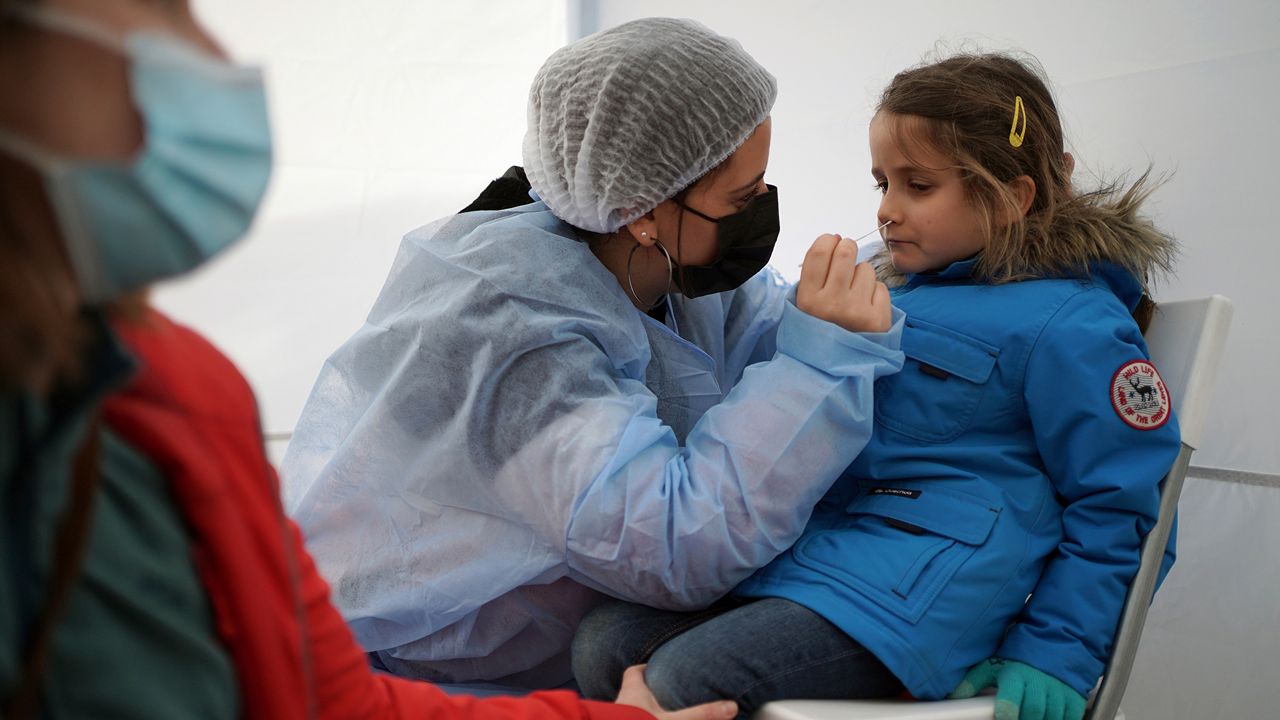COLUMBUS, Ohio — Children’s hospitals in Ohio are treating young patients who develop the post-infection condition MIS-C — multisystem inflammatory syndrome in children, an expert said Thursday.
What You Need To Know
- A rare post-infection condition can impact kids
- Pediatric MIS-C patients can require ICU admission
- Doctors treat patients with anti-inflammatory drugs
After record virus numbers earlier this winter, hospitals are caring for pediatric patients with the rare but serious condition, which typically results in symptoms about four to six weeks after infection, according to Dr. Amy Edwards, associate medical director of women’s and children’s infection control at University Hospitals Rainbow Babies and Children’s Hospital in Cleveland.
“They come down with this severe fever, vomiting, diarrhea, weird rashes and they end up in the ICU, and a lot of these kids require fairly aggressive ICU care for a number of days,” Edwards said during an Ohio Department of Health news conference Thursday.
Many of the kids who ultimately require treatment for MIS-C had mild bouts with the virus or were even asymptomatic, she said.
While it’s still true that COVID-19 presents the most concern for seniors, Edwards said it’s important to know about the risks of MIS-C in children.
To treat MIS-C, children’s hospitals are using medications that are aimed at lowering the inflammation the patient is experiencing, Edwards said.
“We have to put them on significant anti-inflammatories to kind of basically reduce their immune function to get them better,” she said. “MIS-C can have significant complications. It can affect the heart. It can cause blood clots, which can affect various organs of the body because when blood clots on its way to an organ, then it can affect that organ downstream.”
Edwards said “COVID long haul” is the other post-infection concern that she has as a pediatrician.
“I can tell you about kids who were track athletes and hockey athletes and volleyball players, and now they can't hardly get out of bed. They've had to quit sports. Some of them have had to go back to online schooling because they can't tolerate schooling in person because they're so exhausted,” she said.
The COVID Recovery Clinic at University Hospitals has treated a significant number of children, experiencing fatigue and exercise intolerance, among other issues, Edwards said.
“I can tell you about kids who have had memory loss. I can tell you about kids who suffer from severe debilitating migraines, body aches. I mean, it's truly one of the most heartbreaking things that I'm dealing with right now,” she said.
Edwards said vaccinated kids are less likely to develop MIS-C, and she said it’s likely also the case that vaccinated kids are at lower risk for “long haul” effects, based on studies of adults.
To reduce the risks of these conditions, she said it’s also important for parents to keep their kids home from school and day care if they are experiencing any possible COVID-19 symptoms like fever, runny nose or cough.
Declining case numbers should not deter kids from getting vaccinated because research has demonstrated that kids tolerate the vaccines very well, Edwards said.
“When parents are doing that risk-benefit analysis, they naturally view the vaccine as very risky, which is a message I have been educating against over and over and over again,” she said. “As the case numbers drop, I think they're feeling like their kid is going to get less benefit from it, and so that imaginary risk from the vaccine really starts to pull them towards not vaccinating.”



